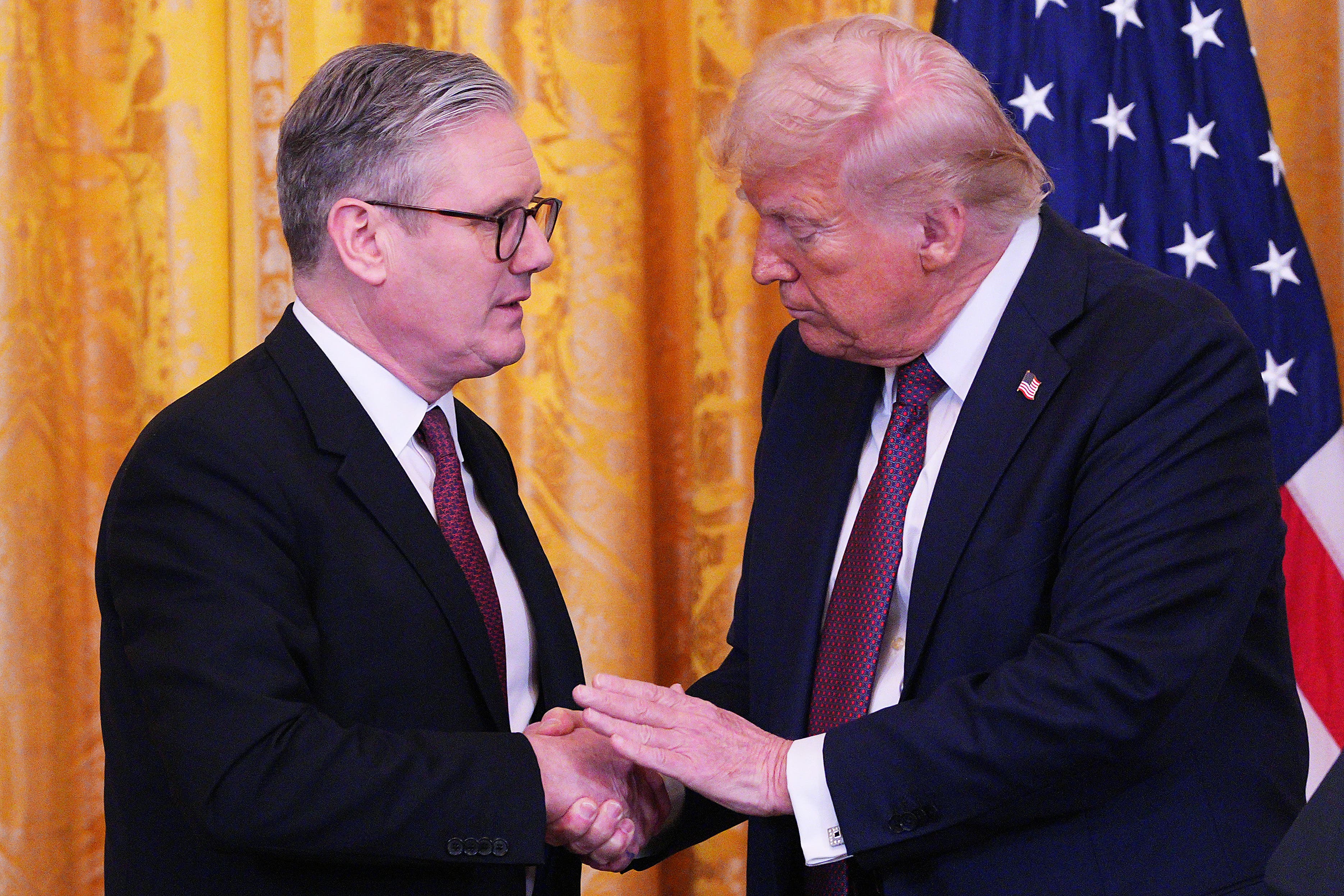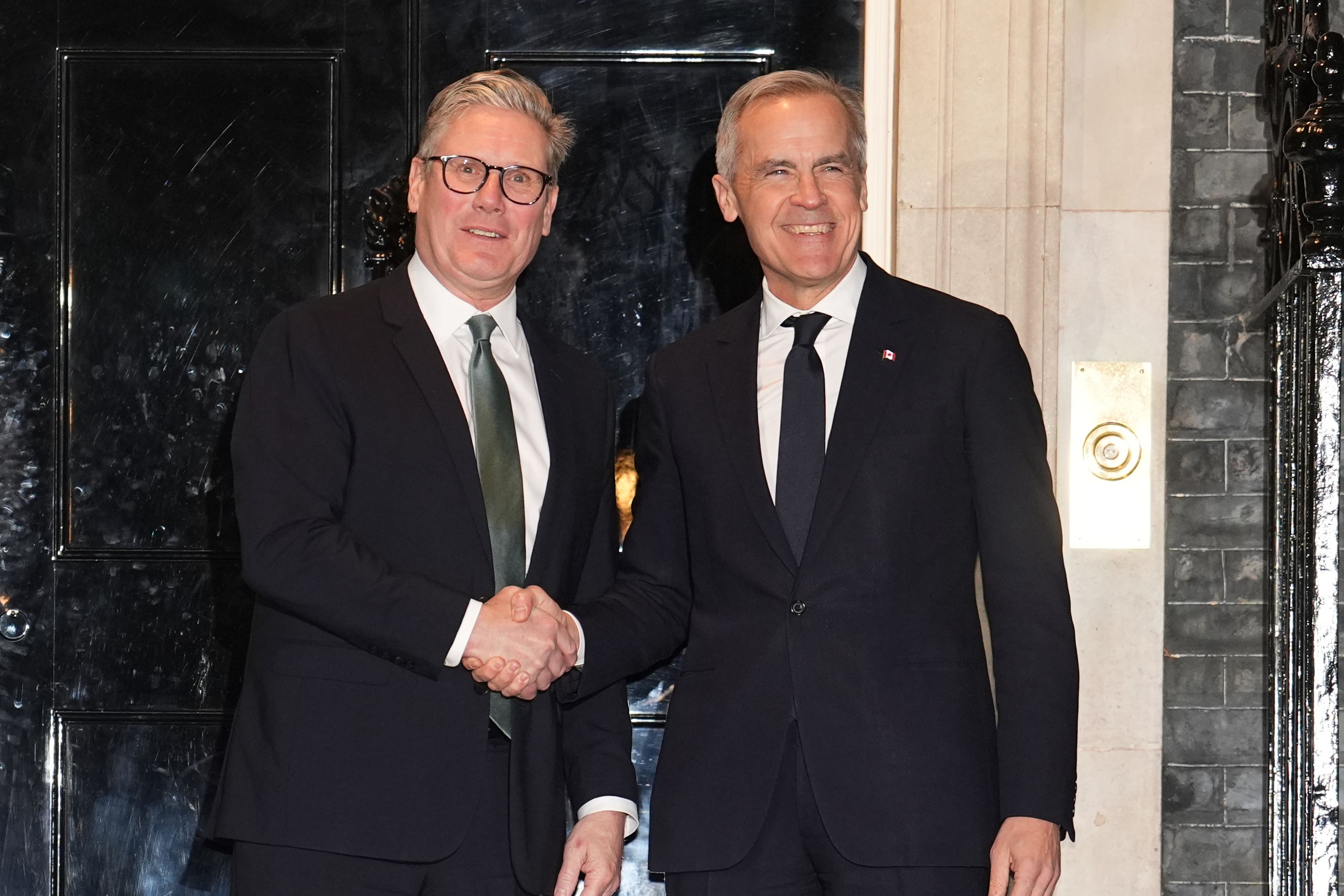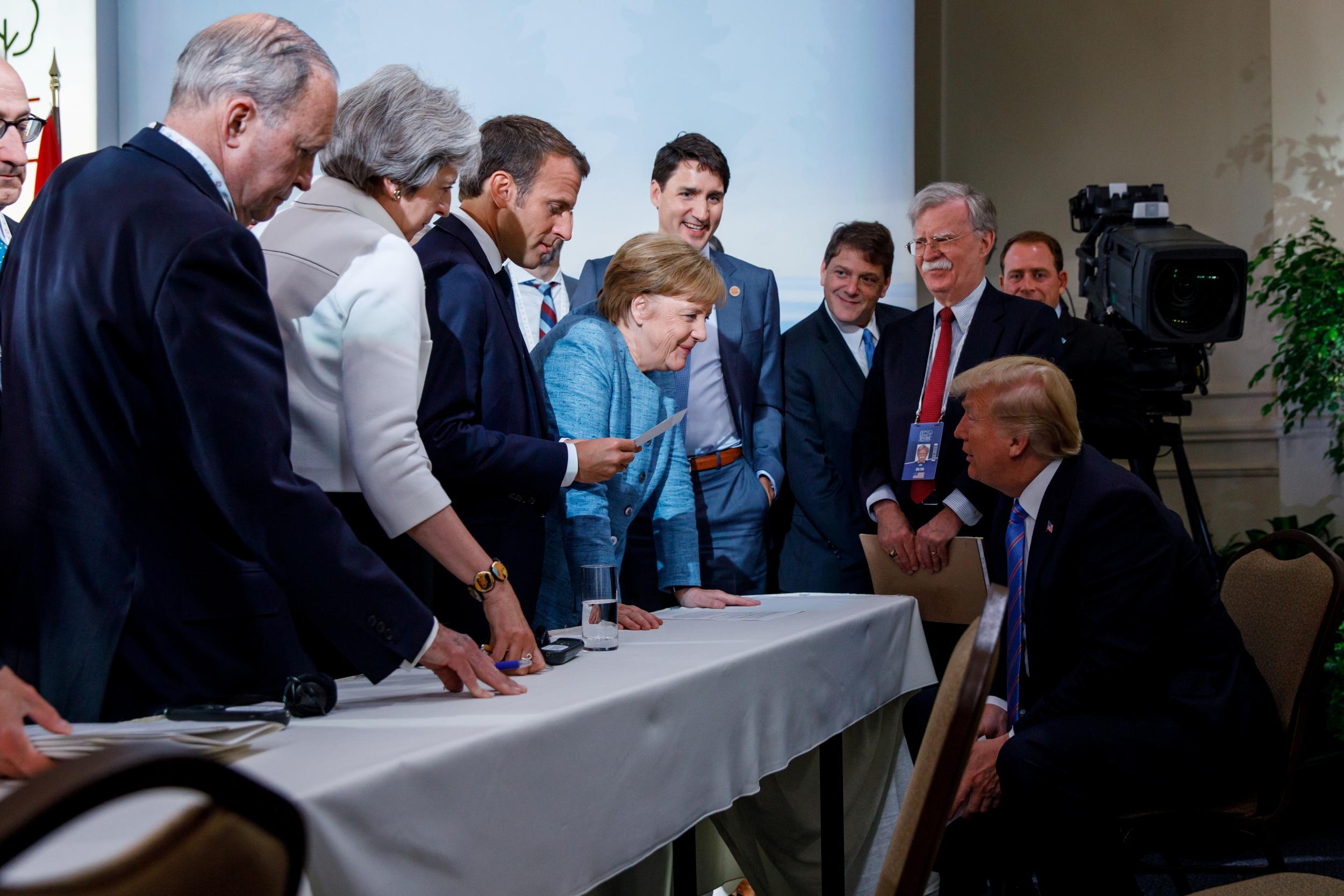There may not be enough maple syrup in Canada to sugarcoat any diplomatic misstep by Keir Starmer as he joins arguably the most important international summit of his premiership so far.
The last time the word “Canada” passed the prime minister’s lips on a trip to North America, it caused a diplomatic storm with one ally even as he was carefully trying to get another one on side.
This weekend, the prime minister joins fellow leaders from the world’s biggest economies, including Donald Trump, for the G7 summit in Alberta.
While the leaders, hosted by recently reelected Canadian PM Mark Carney, will discuss a number of issues, top of the real agenda will be the hot topics of US tariffs, the war in Ukraine and now the combustible situation in the Middle East with Israel’s America-backed attacks on Iran.

Starmer – with his soft approach to dealing with Trump – will be hoping that he can stay on course to get the trade deal the two announced to great fanfare over the line.
The UK prime minister will also be trying to edge Trump towards a tougher approach to Russia and avoid him ditching the Aukus submarine agreement with the US, UK and Australia.
All this requires a careful balance of egos, particularly that of the man from the White House. Trump is at his first summit since being ousted from office in 2020.
But the added picante to this summit is the overhang of a diplomatic incident Sir Keir inadvertently caused the last time he was asked about the status of Canada in the presence of the president.
Back in March, at the White House press conference, the prime minister was pressed by The Independent’s White House correspondent, Andrew Feinberg, on Trump’s (ongoing) plans to turn Canada into the 51st state.
Just hours after Sir Keir had handed Trump an invitation from the King for a state visit to the UK in the Oval Office, it seemed only fair to ask about the status of another part of Charles III’s sovereign realms on the US border.
The prime minister, desperate to be Trump’s best pal, at the time, tried to laugh it off.
He said: “Look, we had a really good discussion, a productive discussion... You mentioned Canada, I think you are trying to find a divide between us that doesn’t exist, we are the closest of nations. We didn’t discuss Canada.”
To say the failure to stand up for Canadian sovereignty did not go down well in the Commonwealth country is an understatement.
Among a series of angry and disobliging quotes was one from retired Canadian ambassador Artur Wilczynski.

He noted: “Starmer’s refusal to come to Canada’s defence in front of Trump is more than disappointing. Canadians died for the UK by the tens of thousands. He could have opened his bloody mouth to speak up for us.”
But the incident, likely to come up as an issue again with Trump next week, highlighted the near-impossible situation he has in dealing with the US president.
Waving off the problems of the UK’s Canadian cousins was perhaps a price worth paying if it meant going from Obama’s “back of the queue” for a trade deal to the front of the line with Trump.
Unfortunately, even though it was announced to great fanfare, the trade deal with the US still has not come into effect.
Just on Thursday, business secretary Jonathan Reynolds was telling journalists at Parliament’s press gallery lunch about his frantic calls to keep the negotiations moving.
Worse still, the zero tariffs that Sir Keir thought he had won on steel could turn into 50 per cent tariffs if issues are not resolved soon, after Trump increased his levies.
Meanwhile, the Trump administration is showing outright hostility to the UK for arguably doing the right thing in sanctioning extremists in the Israeli government.
Surrounded by other allies, including the EU, Germany and France, Sir Keir will need to carefully balance his approach, especially if Trump gets tetchy again.
For those of us who have been around a bit, we all remember the last time Trump arrived for a G7 summit in Canada in 2018 and the utter chaos it unleashed.
Sir Keir could do well to call former prime minister, Baroness Theresa May, for advice on how to handle it, because this G7 is a case of deja vu.

Trump infamously arrived late but was persuaded to sign a communique of the event hosted by the then-Canadian PM Justin Trudeau after he was surrounded by fellow leaders led by German chancellor Angela Merkel.
In the process, the US president managed to insult the Japanese prime minister, the late Shinzo Abe, suggesting he would send 25 million Mexicans to Japan to teach him about migration issues.
Things only got worse when he left early to fly to Singapore to meet North Korean despot Kim Jong Un.
A fed-up Trudeau said of Trump: “Canadians are polite and reasonable, but we will also not be pushed around.”
Trump’s ego was hurt and his swift rebuke was to accuse Trudeau of acting “meek and mild” during meetings, only to attack the US at a news conference, and order his team to unsign the communique he had agreed to support in response.
When she was asked by The Independent’s Kate Devlin (then of the Sunday Express) in the subsequent press conference about whether Brits would be pushed around, Baroness May characteristically suggested they were “strong and stable” – a phrase which provided the epitaph for her tumultuous premiership.
She was, though, at the time somewhat traumatised by her Brexit negotiations with the EU and the political upheaval it caused in the UK.
The lessons of the present and the past should act as a warning for Sir Keir to prepare for complete disarray and to expect anything.
But, given recent criticism of his leadership style, he may want to be less robotic in his responses than Baroness May and might want to avoid selling out Canada again.
UK investigators arrive in India as tributes pour in for plane crash victims
Keir Starmer reiterates need to ‘de-escalate’ Israel-Iran conflict
Israel-Iran latest: Israel will strike ‘every site and target’, says Netanyahu
‘No Kings’ protests live: Anti-Trump rallies across U.S. ahead of military parade
Kemi Badenoch thinks people leaving Conservatives is a ‘good thing’
Fears assisted dying bill could be defeated as MPs warn ‘tide is turning’







